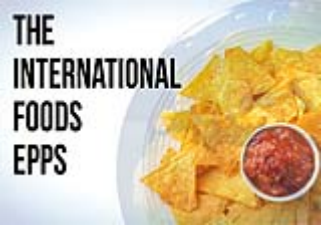Event Buzz: International Foods 9/3/2015
While we’re all familiar with U.S.-based food buyers going overseas to source international products, it’s less well-known that many International retailers and distributors send their buyers here to find new and innovative products. This was certainly the case at ECRM’s recent International Foods event, in which both buyers and sellers from here and overseas gathered to share ideas and discover products to source for their respective countries..
LePaul Alimentos Importados, a Sao Paulo, Brazil-based distributor that services food retailers such as delis, restaurants, and supermarkets, is a case-in-point. “Food in the U.S. is always very innovative,” said Halina Lokower, a buyer for LePaul. “We come here looking for items that we don’t have in our markets.”
And what trend are they seeing in their markets? Not surprisingly, it’s healthy eating. “Everyone wants to take care of their health, and the food companies we supply are always looking for healthy foods,” Lukower added. “They want gluten-free, lactose-free, sugar-free, super seeds, and organic. More people are intolerant or have allergies these days, but they aren’t the only ones seeking these products. Even those without allergies feel better about eating these foods.”
This was a sentiment mirrored by many buyers and sellers interviewed by ECRM staff throughout the show during its event debriefings. They are looking for healthier foods in all categories, particularly healthier snack options with cleaner ingredients, vegetable-based snacks, high-protein snacks, and ‘free-from’ products. Coconut continues to grow in popularity, whether it’s coconut oil, coconut flakes, or coconut beverages.
Another key trend uncovered during the event debriefings is the mainstreaming of ethnic foods – not just here in the U.S., but in other countries, as well. Canadian buyers are looking for Southeast Asian, Middle Eastern, and Latin American foods; Latin American countries are sourcing foods from Korea, Europe, India and Poland; and all kinds of Asian foods – Thai, Korean, Chinese, and Japanese – are popular in Russia. The reason for this, according to one attendee, is that immigrants to various countries bring their brands home with them, exposing their friends and families to these new products and generating demand.
Challenges
Still, these international sourcing opportunities comes with challenges, such as logistics and freight issues and costs, and distribution issues. “I’ve come across a lot of sellers who will have to export their product, it would be good if they are already set up with an importer or have a department in their office who deals with that process,” said one international buyer.
Other challenges included:
- Having the right prices for countries with high taxes
- Having sufficient warehouse capabilities in this country. “They can’t import, and they can’t bring in entire containers of product,” said one attendee.
Register for next year’s International Food events:
International Foods: July 24 to 26, 2016 at the Hyatt Regency Miami (Miami, Fla.)Global Wine, Beer & Spirits: August 28 to 31 at the Sheraton San Diego Hotel & Marina (San Diego, Calif.)
Related Links:
International Foods Presentation Download: Data-Driven Sales GrowthInternational Foods Presentation Download: Accessing the New American Mainstream
International Foods Presentation Download: Reaching Hispanics in a Digital World

